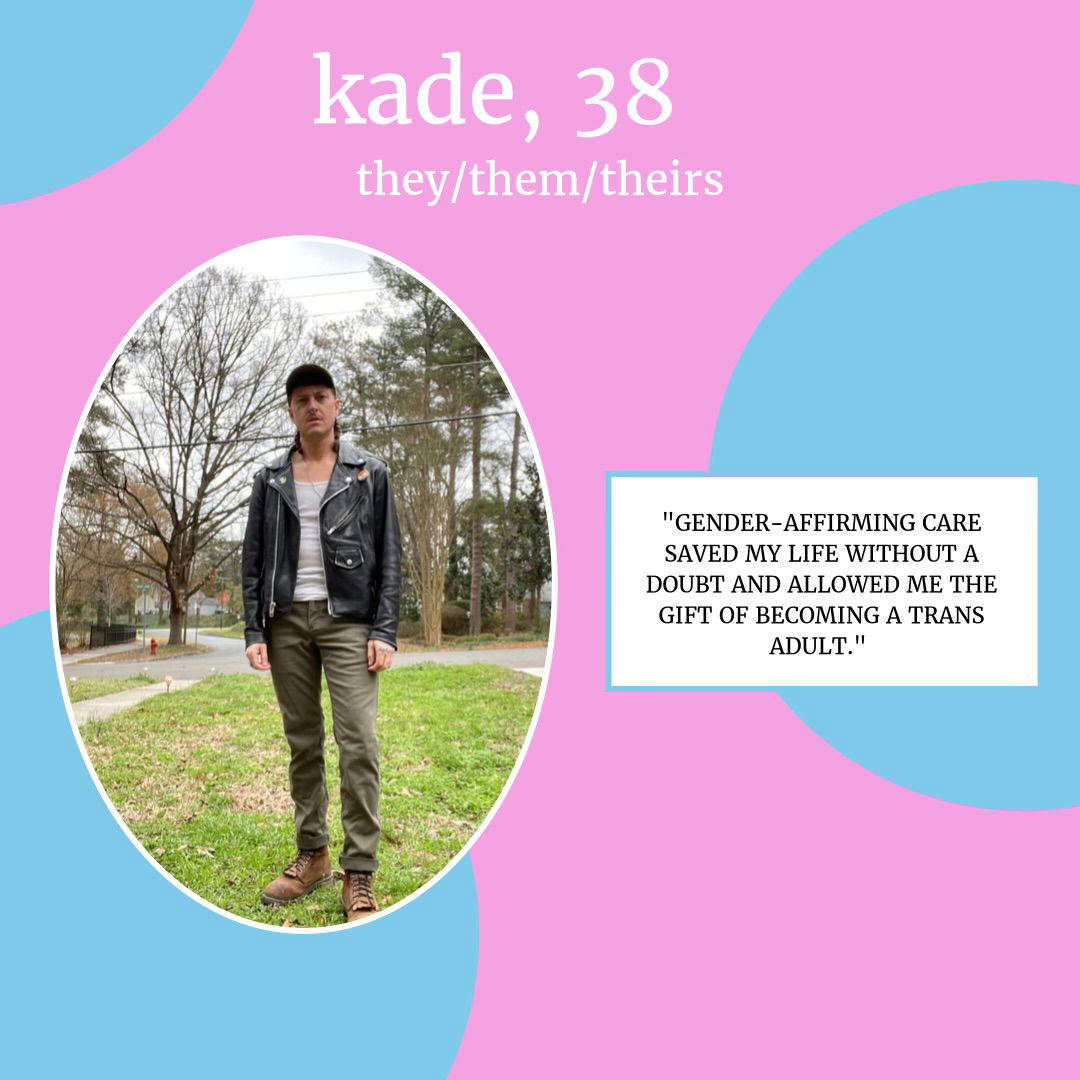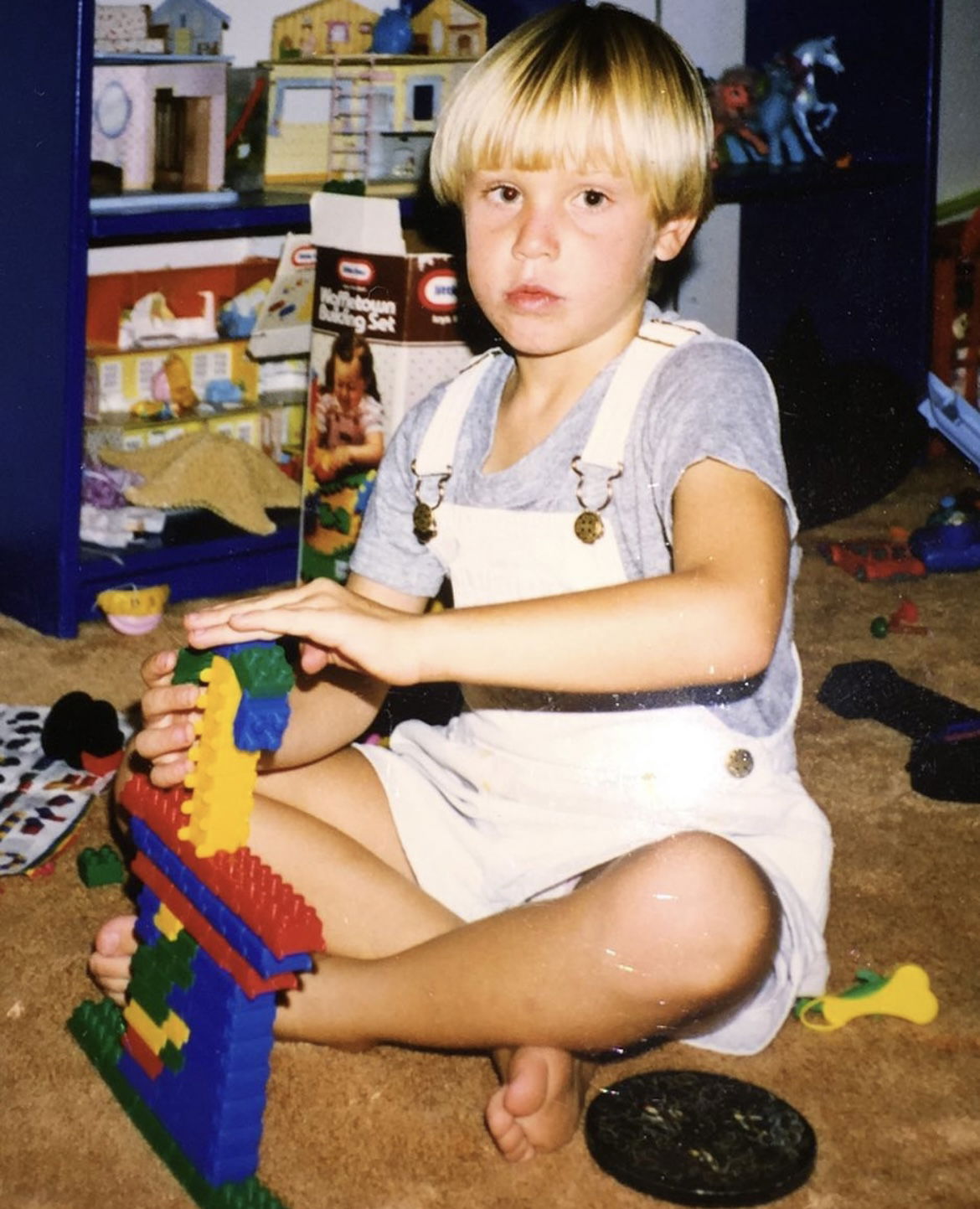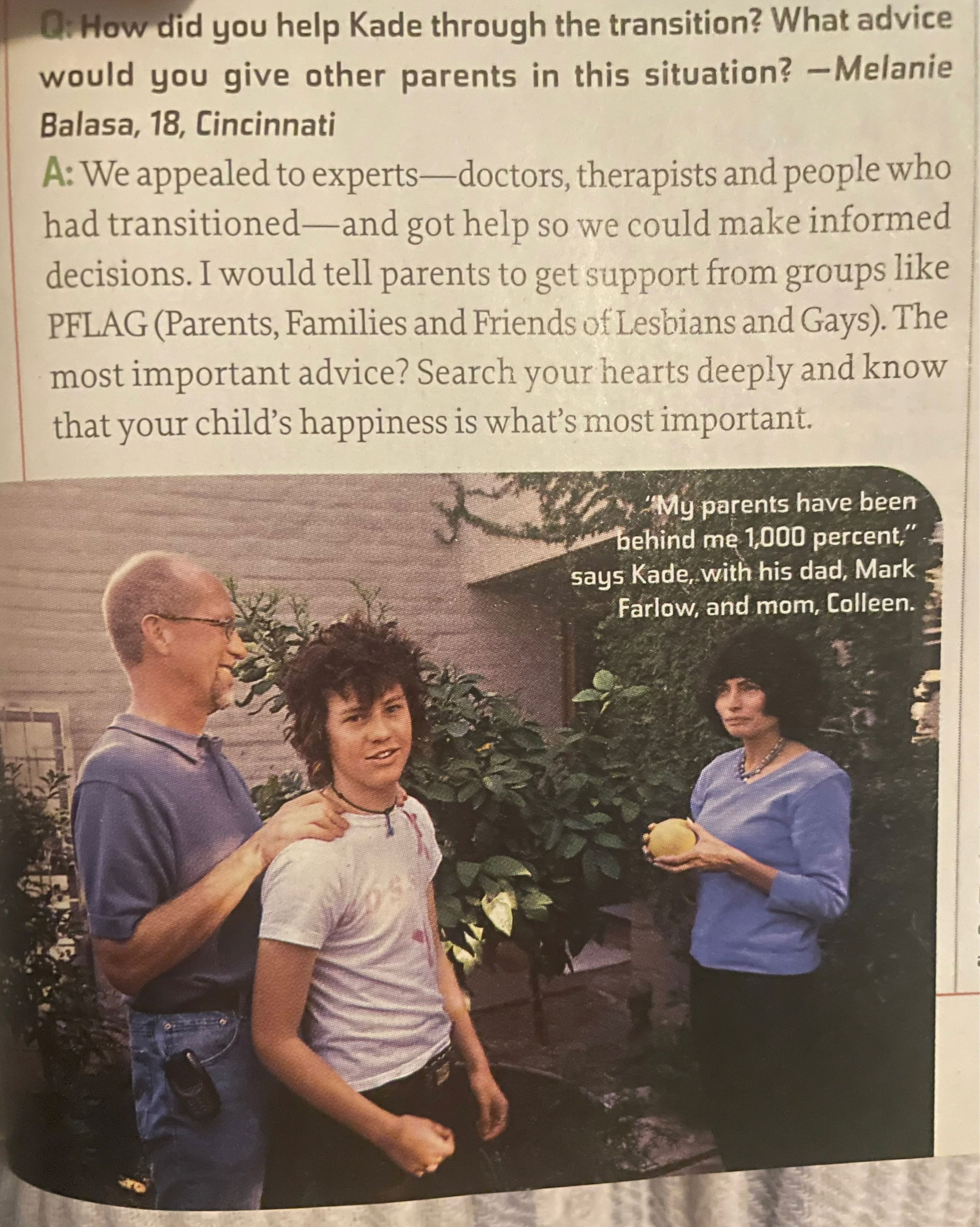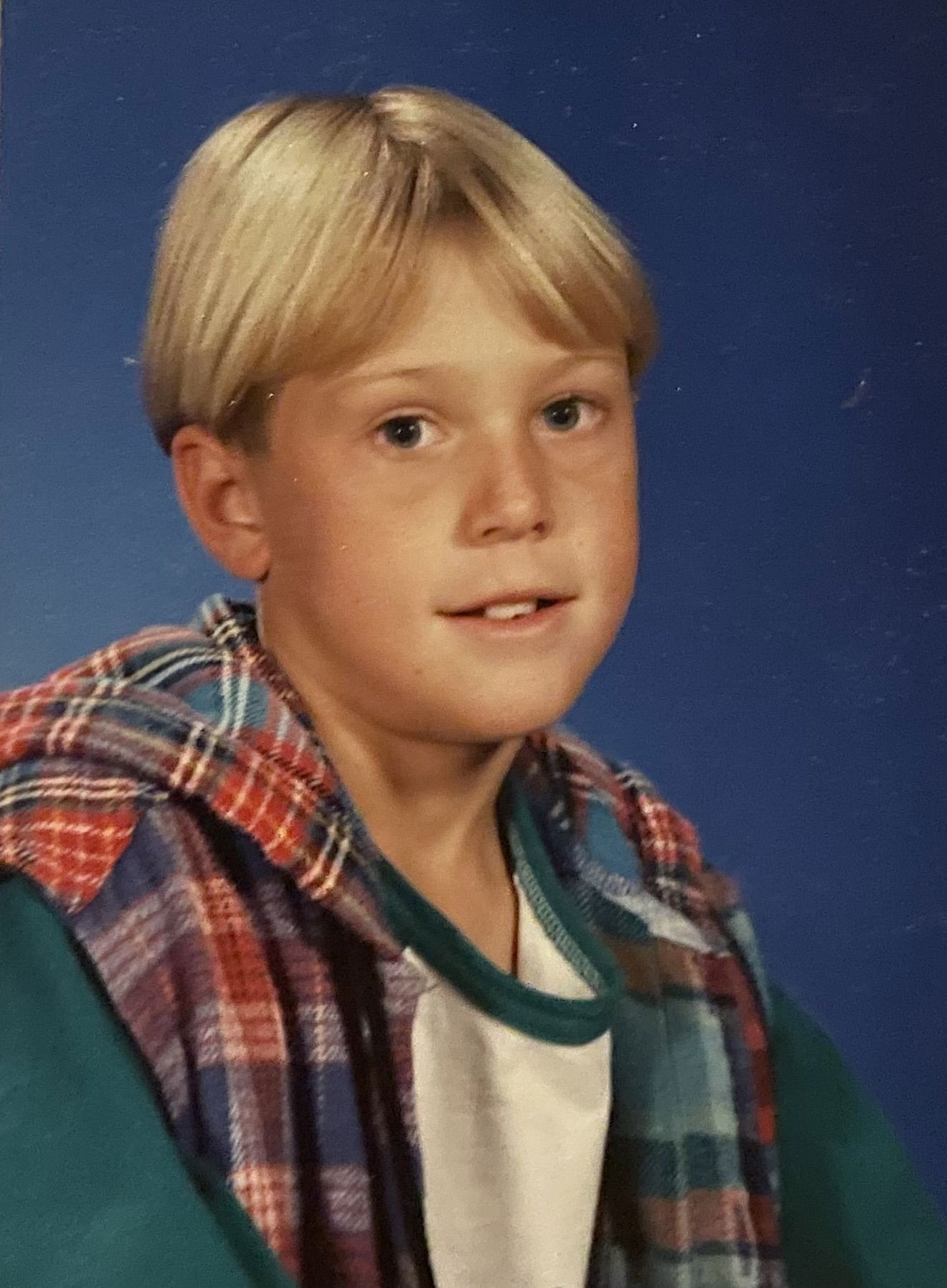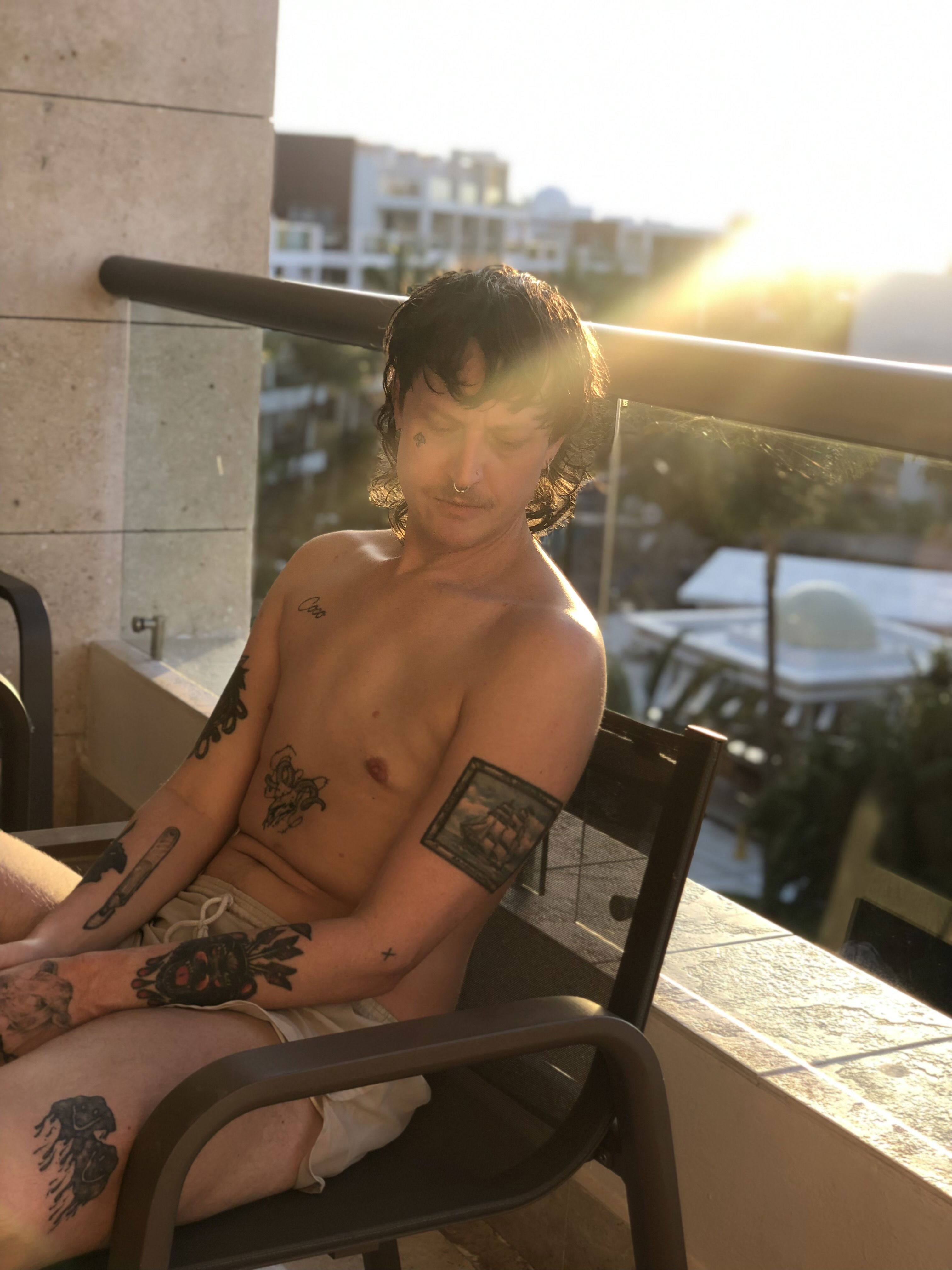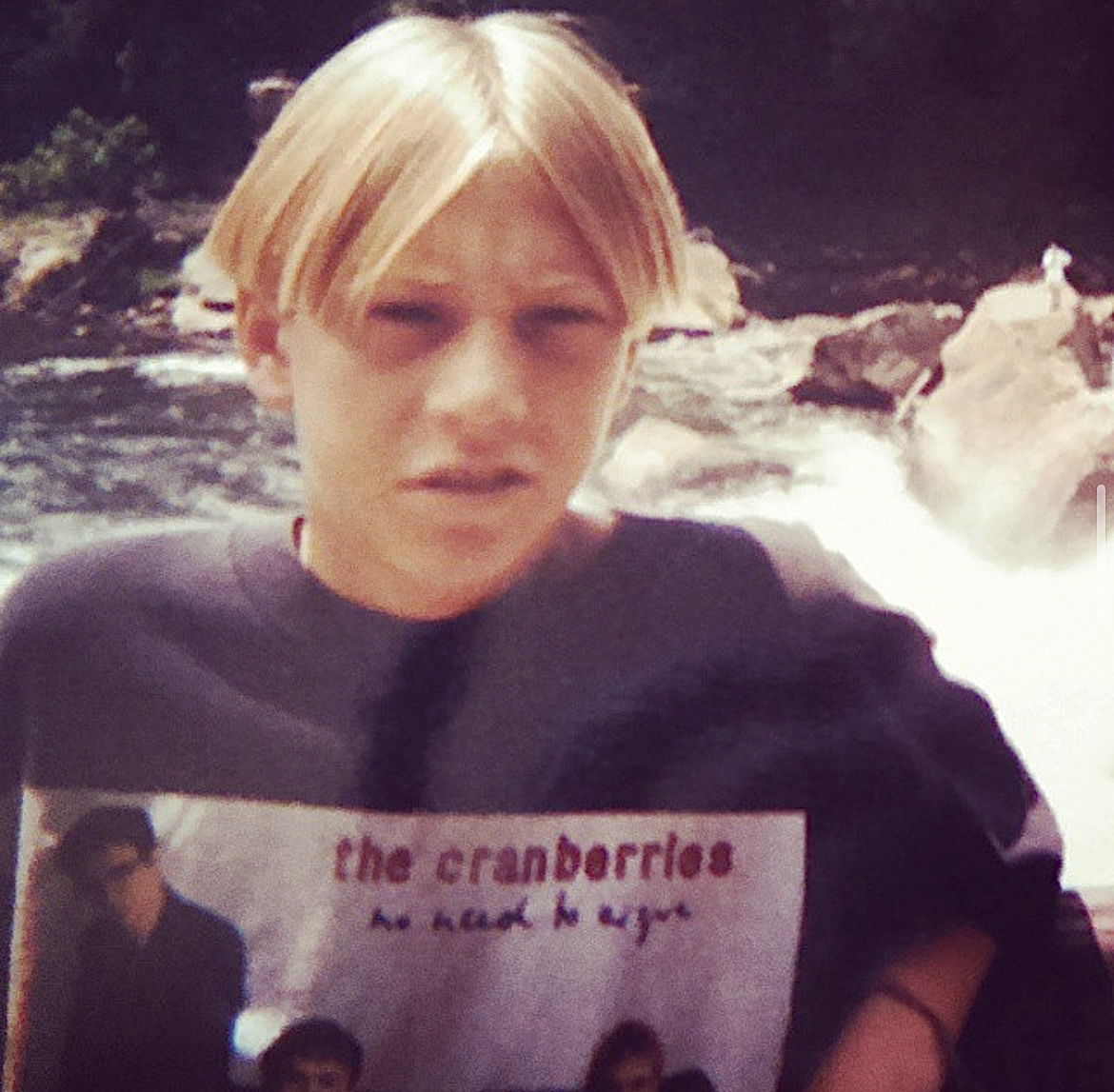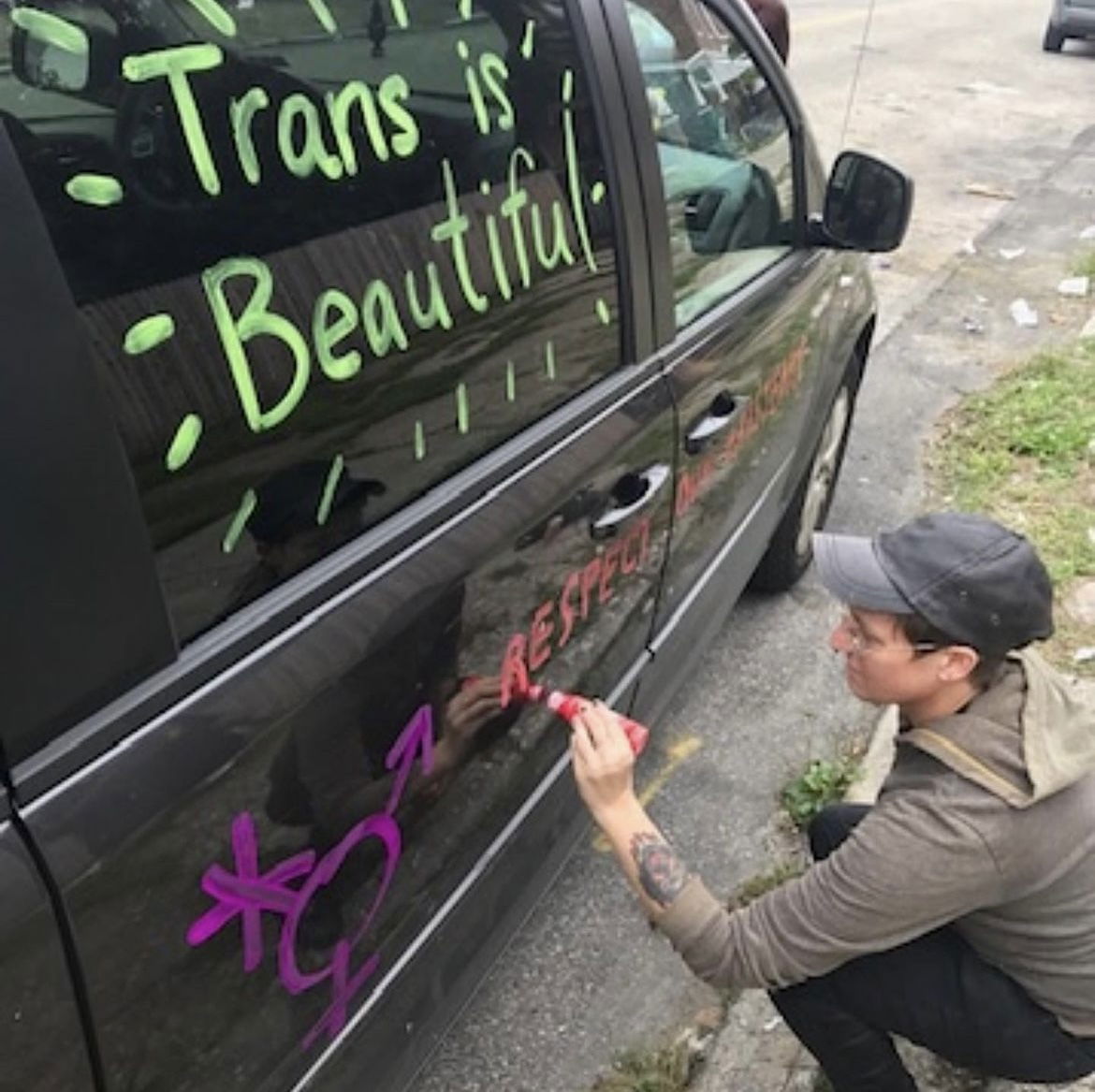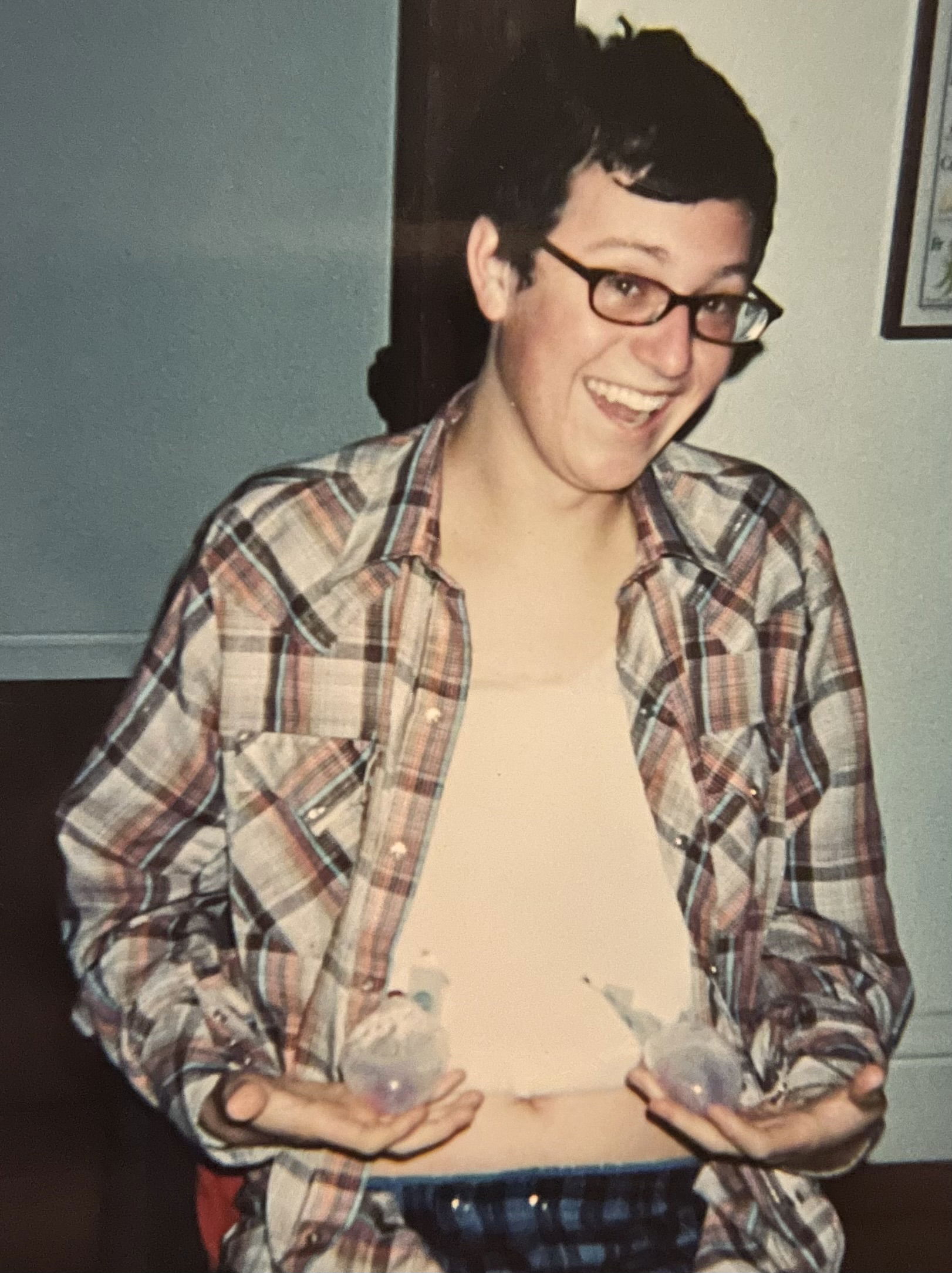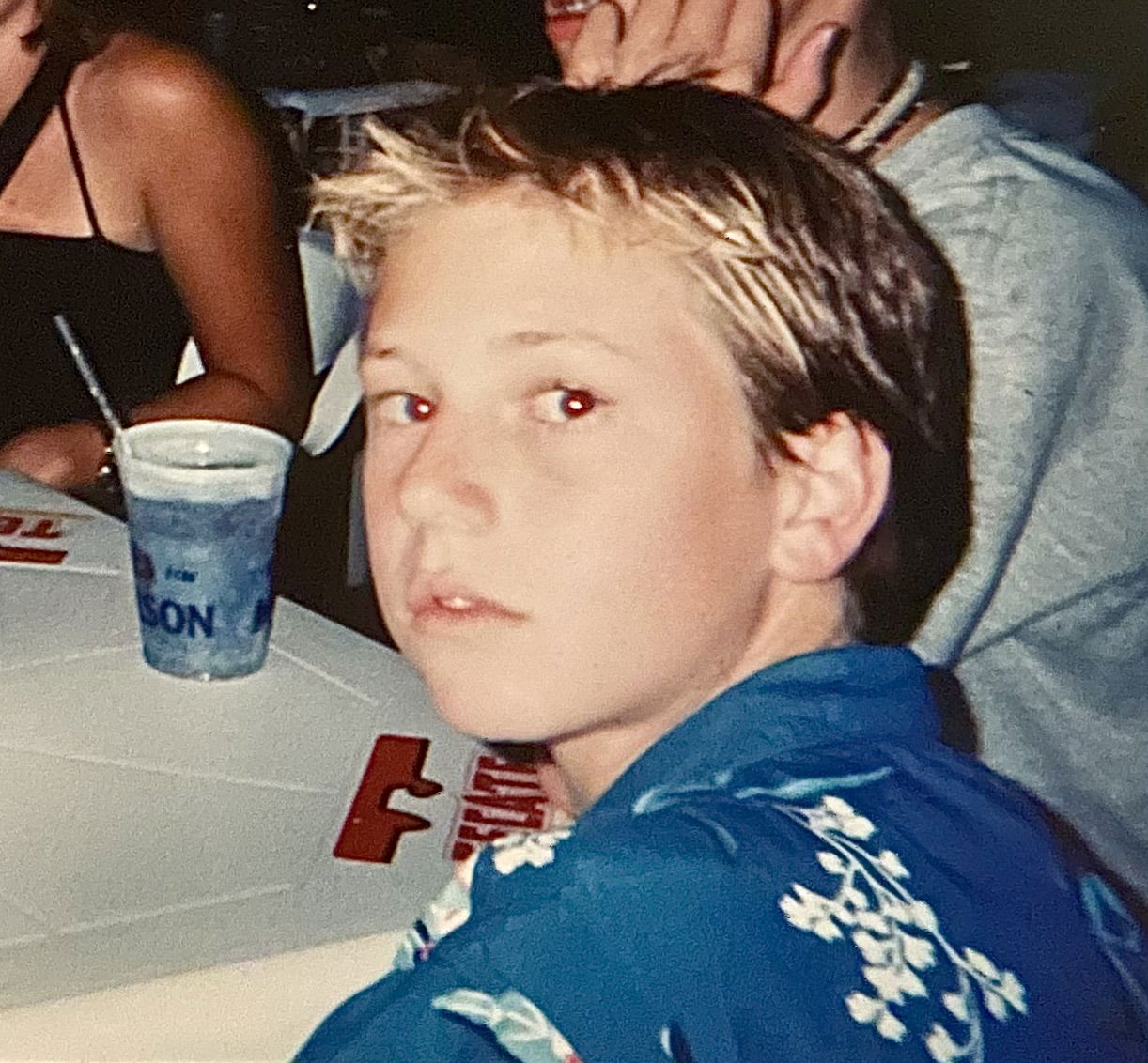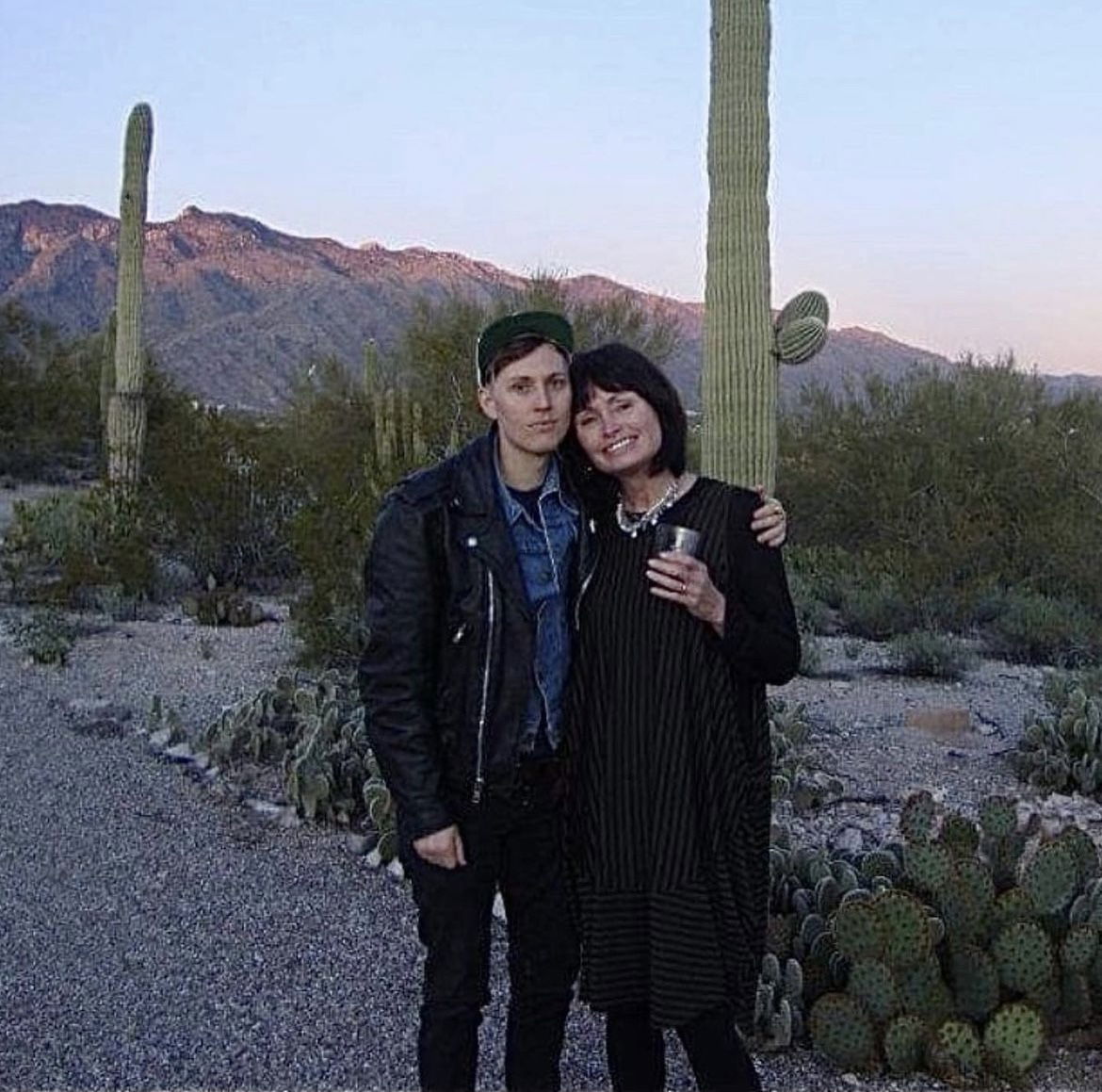Kade, 38 they/them/theirs
Q. What is your name, age, pronouns and how do you identify? Please include any intersectional identities that are important to you and your lived experience. Where did you grow up?
A. Kade, they/them pronouns and I identify as a non-binary trans person. I was born in Tucson, Arizona in 1985.
Q. How old were you when you first became aware that you did not identify with the sex you were assigned at birth? What are your earliest memories of being different from cis kids?
A. My earliest memories are from age 4 or 5. One is of me being forced to wear a dress and having a complete breakdown. My mom promised me that if I wore a dress for the Christmas party we were going to, she would never make me again. Another one is of me getting my hair cut short right before starting kindergarten. I remember everyone thinking that I was a boy on the first day and feeling so upset that I couldn’t just allow them to see me as such. I passed as a boy 100% of the time from that time to when I started puberty.
Q. What messages did you receive from others about your gender expression? Was it positive, negative or a mixture? Did you try to conform to gender norms and if so, how did this impact you?
A. It was definitely a mix. I was incredibly lucky to have a family that was very accepting of me despite being simultaneously overwhelmed and concerned for my mental health and safety. This was in 1999 and no one they knew had ever heard of being transgender, even their gay and lesbian friends. My parents were incredibly supportive of who I was and my right to bodily autonomy and authentic expression. Around the age of 9 or 10 my family started to have to bring my birth certificate to my soccer games to prove that I was a girl, as parents and coaches on other teams began to harass me during games and actually demanded genital inspections on multiple occasions. The world was a scary and infuriating place a lot of the time; instead of the usual things a kid might be scared of late at night, I was terrified of the outside world and the thought of being an adult in it.
Q. How old were you when you discovered language to describe your trans experience? How did discovering language to explain your relationship to gender impact you? How did it impact you to discover that there were other people who also felt similar to you? What were your earliest representations of trans people?
A. When I came across the word “transgender” my whole world changed, and I suddenly felt hope and excitement for my future in a way I never had before. I was 13, almost 14, and this lingering fear that I had carried in my body for as long as could remember transformed into hope. When I was 6 or 7 I convinced myself that I wouldn’t live past the age of 16. Somehow this thought was more comforting than the anxiety I would experience when I tried to picture the adult version of myself. I had literally prepared for and been obsessed with death for so long and now I suddenly, in an instant, became obsessed with living. My earliest representations of trans people were from 90s talk shows and horror films as a kid. As a young adolescent I discovered Leslie Feinberg and hir’s book, Transgender Warriors, and I cried when I saw the photo of Lou Sullivan featured in it.
Q. When did you come out as trans? What was this experience like for you?
A. I ended up coming out very publicly when I agreed to allow a documentary to be made about me titled, “Just Call Me Kade.” I began publicly speaking and traveling around the country with the purpose of educating others about trans existence, particularly the existence of trans youth. I stopped doing interviews with the media at this time after Oprah deadnamed me and called me a “female” in an episode featuring the documentary, humiliating me as everyone in my school made a point to watch the episode. I was already feeling frustrated with the ways in which journalists had spun my words in previous interviews and this was the final straw for me and my mental health at this time.
Q. Were you able to access what you needed in order to socially and/or medically transition at that time?
A. At age 14 I was able to access a psychiatrist who diagnosed me with Gender-Identity-Disorder, which was the diagnosis trans people received back then. My psychiatrist researched the standards of care for trans patients and I was eventually able to start puberty suppressants due to having active suicidal ideation on a daily basis. My mental health improved immediately, and I felt like I could handle having to wait 1 full year of seeing a psychiatrist in order to potentially start testosterone. Unfortunately, insurance only provided 6 months of coverage and my family was unable to afford suppressants out of pocket, resulting in me becoming actively suicidal once again. Staying alive felt like a huge struggle at this time and I began engaging in self-harm on a regular basis and feeling afraid of my own thoughts as I felt more and more mentally disturbed. I came very close to ending my life on multiple occasions, I stopped playing soccer and my grades dropped. My mom shared that she would have tried to admit me to a hospital, however she was scared of how I would be treated and that being hospitalized might create a barrier for me starting hormones due to medical gate keeping. I was finally able to start T when I was 15 and obtain a legal name change, however I was denied a gender marker change. I had then had top surgery at age 16 and my gender dysphoria almost disappeared completely by this time. Gender-affirming care saved my life without a doubt and allowed me the gift of becoming a trans adult. Today I am a therapist working to provide the same care to my clients that saved my life 25 years ago.
Q. Is there anything you would like to say to trans youth reading your story?
A. You are stronger, braver, smarter, funnier and more beautiful than any pathetic transphobe out there. You are perfect for exactly who you are and you have so many trans siblings out there fighting for you.
Q. What would you like to say to people who believe that it is wrong to provide trans youth with gender-affirming care?
A. If you are truly concerned about the safety and health of trans kids, please accept that you don’t need to be. You are not an expert on being trans or in providing evidence-based care that is a result of over 50 years of research. You may have recently discovered that trans youth exist but please take a seat and recognize that trans youth have been here since the beginning of time and you’re extremely late to the party. Your cisgender hysteria is pathetic and it’s disgusting that you constantly place your own comfort above the lives of trans youth.
Q. What does trans joy look like in your life today?
A. Being with my trans friends, swimming without my shirt on, when my partner braids my hair and calls me handsome, seeing my reflection and recognizing who I see. I feel trans joy when I get to witness trans youth connecting and supporting each other and living their lives unapologetically. I feel trans joy when I’m able to reflect on what a gift being trans has been for me in my life and how it has only made me closer with my family and friends.
